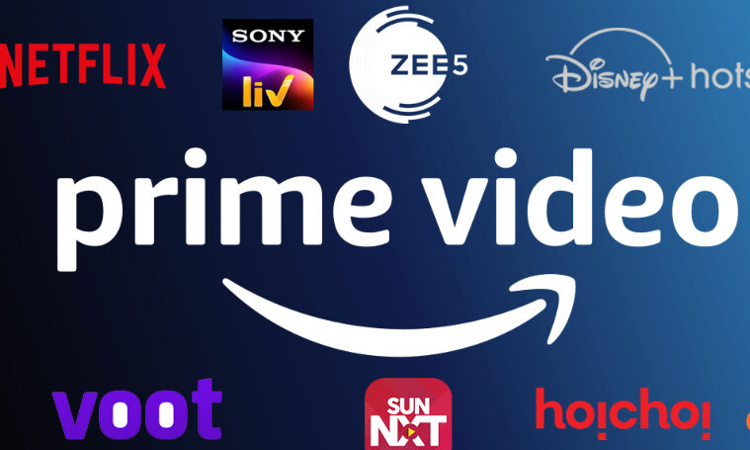Govt. Takes The First Step Towards Regulating OTT Platforms In India
Santosh Vikram Singh & Shashank Venkat
18 Nov 2020 10:49 PM IST

The recent news about the Government issuing a notification thereby bringing online content providers (OTT platforms) such as Netflix, Hotstar, Amazon etc. under the ambit of the Ministry of Information and Broadcasting was more of an overenthusiastic reporting of the matter. As the news spread, more questions and concerns arose about the methods and ways of regulation and control.
Though the message was not completely incorrect as the notification did bring these two categories under the purview of the Ministry of Information and Broadcasting, but the notification was merely regarding the allocation of the business among Ministers/Ministry for the more convenient transaction of the business of the Government of India.
The Notification:
On November 9, 2020, the President of India, in the exercise of the powers conferred by Clause (3) of Article 77 of the Constitution, made certain amendments to the Government of India (Allocation of Business) Rules, 1961 by including the following entries under the ambit of the Ministry of Information and Broadcasting (Ministry of I&B): [1]
VA. DIGITAL/ONLINE MEDIA
22A. Films and Audio-Visual programmes made available by online content providers.
22B. News and current affairs content on online platforms.
Power/ Functions of the President of India under Article 77(3) of the Constitution of India:
Artcle 77 relates to the executive action of the Government of India and all executive action of the Government of India shall be expressed to be taken in the name of the President.
Article 77 refers to the fuction of the President. Therefore, allocation of the business amongst the Ministers is the function of the President which is done on the advice of the Council of Minister headed by the Prime Minister. In Shamsher Singh v. State of Punjab (1974) 2 SCC 831, the Court held that all executive functions are to be exercised in the name of the President and the President is bound by the advice of Council of Ministers, which is headed by the Prime Minister.
Government of India (Allocation of Business) Rules, 1961:
Under the Government of India (Allocation of Business) Rules, 1961, the business of the Government is divided amongst the Ministers and specific functions are reallocated to different Ministries. Each Ministry can therefore issue orders or notifications in respect of the functions, which have been allocated to it under the said Rules.
The Ministry of I&B is the authority for all the matters related to media including Radio, Television, Advertising & Press and it has been regulating them from time to time. However, news, current affairs and other audio-visual program made available by online platforms were not under its purview. With this amendment, the President of India has allocated the business of these two categories as well to the Ministry of I&B.
What prompted the move?
On October 15th, 2020, while hearing a plea filed by Advocates Shashank Shekar Jha and Apurva Arhatia, seeking formation of a board/institution/association for the monitoring of content on OTT/Streaming and Digital Media Platforms, the Hon'ble Supreme Court issued a notice to the Ministry of Information and Broadcasting and the Internet and Mobile Association of India (IAMAI) regarding the same.
Earlier, in January 2019, IAMAI had released the 'Code of Best Practices for Online Curated Content Providers, 2019'[2] which was signed by some of the major OTT players such as Netflix, Hotstar, Voot, Zee5, Alt Balaji and Eros. The code provided for a transparent disclosure system by classification of content in distinct categories and also provided that age-inappropriate content for minors would be accompanied by relevant disclaimers. The Code further provided for a complaint's redressal mechanism, whereby OTT platforms were required to appoint an individual or team to redress consumer-related concerns.
The IAMAI introduced a second tier to this code in February 2020 titled 'Self Regulation for Online Curated Content Providers, 2020'[3]. While this was signed by a few platforms, however the major players like Netflix and Zee5 did not sign the Code and highlighted the lack of consensus and adequate consultation within the IAMAI. In September 2020, the Digital Entertainment Committee of the IAMAI proposed the revised code in consultation with the OTT players which was signed by the most players. Notable exceptions to this were Youtube Premium, Sony Liv, Apple TV.
Future Implications:
Earlier, the Minister of I&B had highlighted the need for regulation of these OTT platforms, analogous to those that exist for Films and Print Media. However, he was also quick to point out that the Government would not take any steps to restrict freedom of expression or curb media freedom.
While many touted that the Government would wait to see the success of this Self Regulatory Code before intervening in the matter, it seems the Government has decided to regulate the content after all, and this move would perhaps be the first step towards it. OTT platforms are likely to resist any regulation which is often seen as extensive censoring of their content and will definitely push back if their creative freedom is being curtailed.
It would be interesting to see how the I&B Ministry moves towards regulating these platforms. No doubt the Ministry has a huge task ahead of it which includes not only bringing in new legislation but also from an implementation and enforcement point of view which would be a larger challenge owing to the involvement of a variety of stakeholders in the matter.
There still remains ambiguity on how these implications will manifest on intermediaries, platforms and content creators. The above-mentioned stakeholders, like the rest of the 'binge-watching' fraternity, awaits the regulations that may be brought by the Govt regarding the manner in which their content is to be regulated, but all signs seem to be a pre-cursor to regulation and interference through heavy legislation.
Santosh Vikram Singh is a Partner & Shashank Venkatis a Legal Intern at Fox Mandal & Associates. Views are personal.


